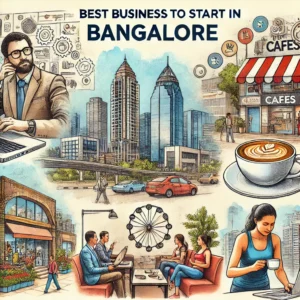Unlock the power of Meme Marketing! Dive into its pros, cons, and strategies for viral brand engagement.
In the vast landscape of digital marketing, trends come and go at the speed of light, but there’s one trend that has solidified its place in the modern marketer’s toolkit: meme marketing. Memes, those witty, often humorous images, videos, and texts that spread virally across the internet, have transcended from mere entertainment pieces to valuable marketing assets. Memes are, in essence, the language of the internet. They capture emotions, societal quirks, and topical events in a way that resonates with vast audiences, often leading to rapid sharing and engagement.
The beauty of memes is their universality. They are relatable, they’re catchy, and they speak a digital dialect understood by both boomers and Gen Z. The right meme, released at the right time, can catapult a brand into the limelight, earning them viral status and making them a trending topic in no time. In an age where every brand seeks the coveted ‘organic reach,’ meme marketing appears to be the secret sauce for many.
However, like any form of marketing, meme marketing isn’t a guaranteed success. It’s a double-edged sword, with its risks and rewards. Not every meme goes viral, and not every viral meme brings in the desired ROI. This unpredictable nature of memes brings an element of risk that brands need to be wary of.
So, how exactly does meme marketing work? What makes it such a potent tool for brands and what are the pitfalls that marketers should be aware of? Dive deep as we unpack the world of meme marketing, exploring its pros and cons, and offering insights that will inspire your next campaign.
Here are the pros and cons of meme marketing
1. Definition of Meme Marketing
- Origins:
- The concept of memes was introduced in 1976 by Richard Dawkins in his book, “The Selfish Gene.” He used the term to describe an idea, behavior, or style that spreads within a culture. Fast forward to the digital age, and we see these “ideas” manifesting as images, videos, and phrases spreading like wildfire across platforms. When brands utilize these viral bits of popular culture to enhance their advertising efforts, we delve into the realm of meme marketing.
- Channels:
- While memes initially found their place on platforms like Reddit and 4chan, they quickly took over major social media channels. Today, you’ll find memes being shared extensively on Instagram, Twitter, Facebook, and even Pinterest. Brands looking to adopt meme marketing should consider where their audience hangs out the most and tailor their meme content accordingly.
2. Pros of Meme Marketing
- Relatability:
- Humans are wired to connect with stories and emotions. Memes often encapsulate shared feelings or experiences that many can relate to. This universal relatability makes them an ideal tool for brands to establish a connection with their audiences without overtly pushing a product or service.
- Engagement:
- A humorous meme can break the monotony of a user’s feed. Given their catchy and often witty nature, memes are more likely to encourage likes, comments, and shares, facilitating deeper interaction between brands and their followers.
- Cost-Effective:
- Traditional advertising can be resource-intensive and expensive. On the other hand, memes, even when professionally designed, often require less financial investment, making them a cost-effective alternative for brands on a budget.
- Viral Potential:
- The dream of every digital marketer is to create content that goes viral. Given their shareable nature, memes have the intrinsic potential to reach vast audiences in a short span, granting brands visibility and recall value.
- Youth Appeal:
- Millennials and Gen Z are the most active internet users. Memes, being an integral part of their online language, present a direct channel for brands to engage these younger demographics in meaningful ways.
3. Cons of Meme Marketing
- Volatile Nature:
- The world of memes is fickle. While one meme may go viral, another might fall flat or, worse, be misinterpreted, leading to potential PR crises.
- Short Shelf Life:
- Memes often revolve around current events or trends. This topical nature means they might get outdated quickly, requiring brands to consistently generate fresh content to stay relevant.
- Over-saturation:
- With the success stories of meme marketing echoing across boardrooms, many brands are diving into the meme pool. This burgeoning interest risks saturating the market, making it challenging for individual brands to stand out.
- Brand Misalignment:
- The informal and colloquial nature of memes may not align with every brand’s persona. There’s a risk of appearing disingenuous or “trying too hard” if memes aren’t executed authentically.
- Legal Risks:
- As brands navigate the meme world, they must be wary of copyright issues. Utilizing someone else’s content without proper permissions or credits can lead to legal entanglements.
4. Navigating the World of Meme Marketing
- Research: Brands need to be on top of current trends. Regularly monitoring platforms like Twitter, Reddit, and TikTok can give insights into what’s resonating with audiences.
- Authenticity: This can’t be stressed enough. Brands should avoid using memes as a mere tool; instead, they should aim to contribute genuinely to the meme culture.
- Customization: While it’s okay to jump on trending memes, customizing them to align with brand values and messages can lead to better audience engagement and recall.
- Feedback Loop: Brands should actively monitor the reactions their meme content garners. Positive or negative, these insights can shape future marketing strategies.
Conclusion
As we stand on the precipice of the digital age, with algorithms evolving and attention spans dwindling, the quest for organic engagement becomes all the more challenging. Meme marketing, with its grassroots appeal and viral potential, presents an exciting avenue for brands. But, as with any potent tool, it demands respect and careful handling.
It’s not just about jumping on a trending meme; it’s about understanding the pulse of the internet, being authentic, and ensuring alignment with brand values. When done right, meme marketing can propel a brand to stardom, but a misstep can result in PR nightmares.
For those willing to venture into this brave new world, the rewards can be immense. And yet, it’s essential to tread with caution, always keeping the audience and authenticity at the forefront. In the dynamic world of meme marketing, the brands that will truly shine are those that can laugh, adapt, and evolve with their audience.
Follow Startup Theater on Instagram for valuable content on entrepreneurship
If you’re a startup founder, submit your startup story for free with us
Did you know? Startups like to use our coworking space in Bangalore
Call +917090977222 to reserve your space at Work Theater
Learn more about our coworking space on our YouTube channel Work Theater Studios where we talk about a variety of topics including personal finance, entrepreneurship, business and life.




